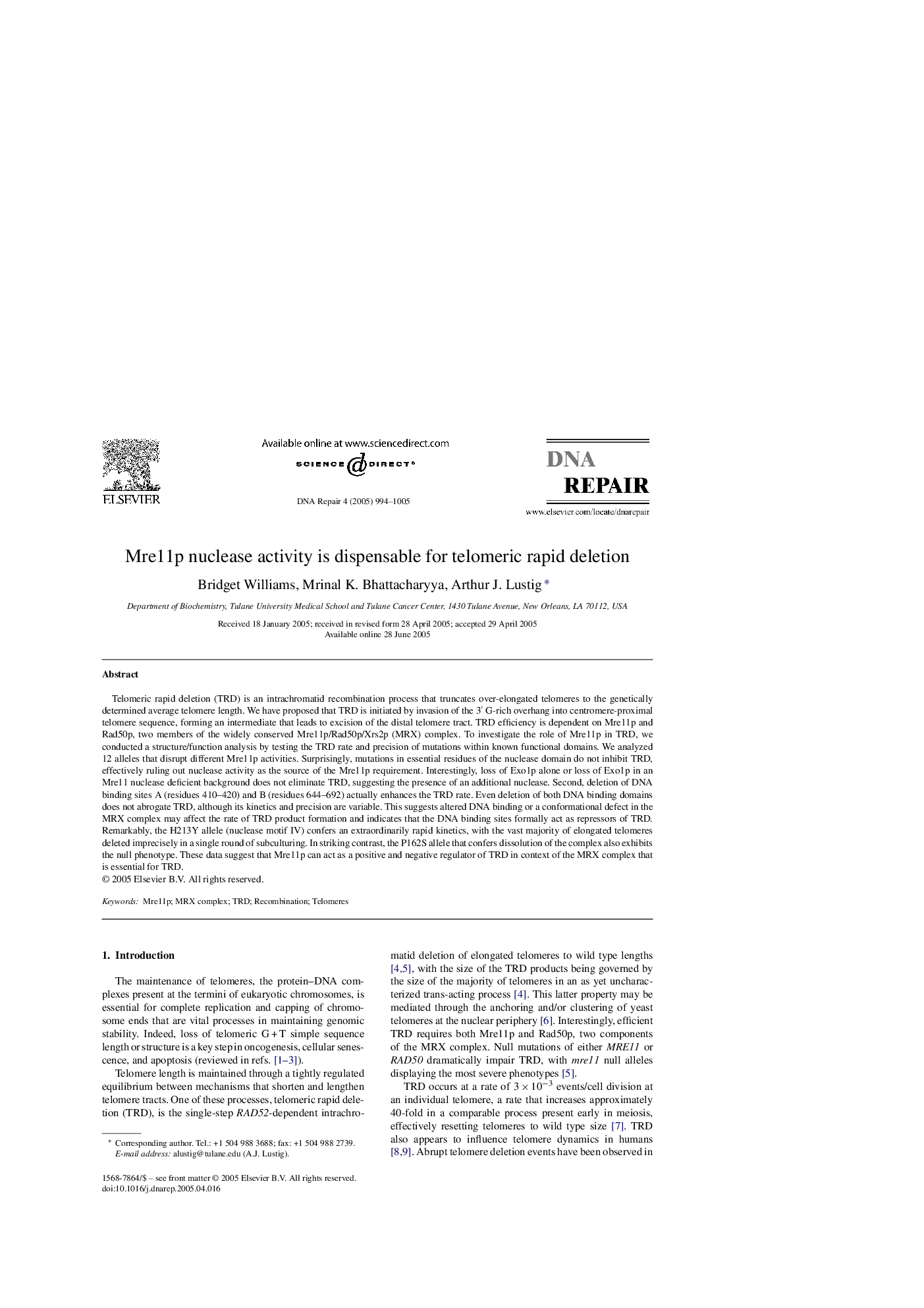| Article ID | Journal | Published Year | Pages | File Type |
|---|---|---|---|---|
| 10823575 | DNA Repair | 2005 | 12 Pages |
Abstract
Telomeric rapid deletion (TRD) is an intrachromatid recombination process that truncates over-elongated telomeres to the genetically determined average telomere length. We have proposed that TRD is initiated by invasion of the 3â² G-rich overhang into centromere-proximal telomere sequence, forming an intermediate that leads to excision of the distal telomere tract. TRD efficiency is dependent on Mre11p and Rad50p, two members of the widely conserved Mre11p/Rad50p/Xrs2p (MRX) complex. To investigate the role of Mre11p in TRD, we conducted a structure/function analysis by testing the TRD rate and precision of mutations within known functional domains. We analyzed 12 alleles that disrupt different Mre11p activities. Surprisingly, mutations in essential residues of the nuclease domain do not inhibit TRD, effectively ruling out nuclease activity as the source of the Mre11p requirement. Interestingly, loss of Exo1p alone or loss of Exo1p in an Mre11 nuclease deficient background does not eliminate TRD, suggesting the presence of an additional nuclease. Second, deletion of DNA binding sites A (residues 410-420) and B (residues 644-692) actually enhances the TRD rate. Even deletion of both DNA binding domains does not abrogate TRD, although its kinetics and precision are variable. This suggests altered DNA binding or a conformational defect in the MRX complex may affect the rate of TRD product formation and indicates that the DNA binding sites formally act as repressors of TRD. Remarkably, the H213Y allele (nuclease motif IV) confers an extraordinarily rapid kinetics, with the vast majority of elongated telomeres deleted imprecisely in a single round of subculturing. In striking contrast, the P162S allele that confers dissolution of the complex also exhibits the null phenotype. These data suggest that Mre11p can act as a positive and negative regulator of TRD in context of the MRX complex that is essential for TRD.
Keywords
Related Topics
Life Sciences
Biochemistry, Genetics and Molecular Biology
Biochemistry
Authors
Bridget Williams, Mrinal K. Bhattacharyya, Arthur J. Lustig,
